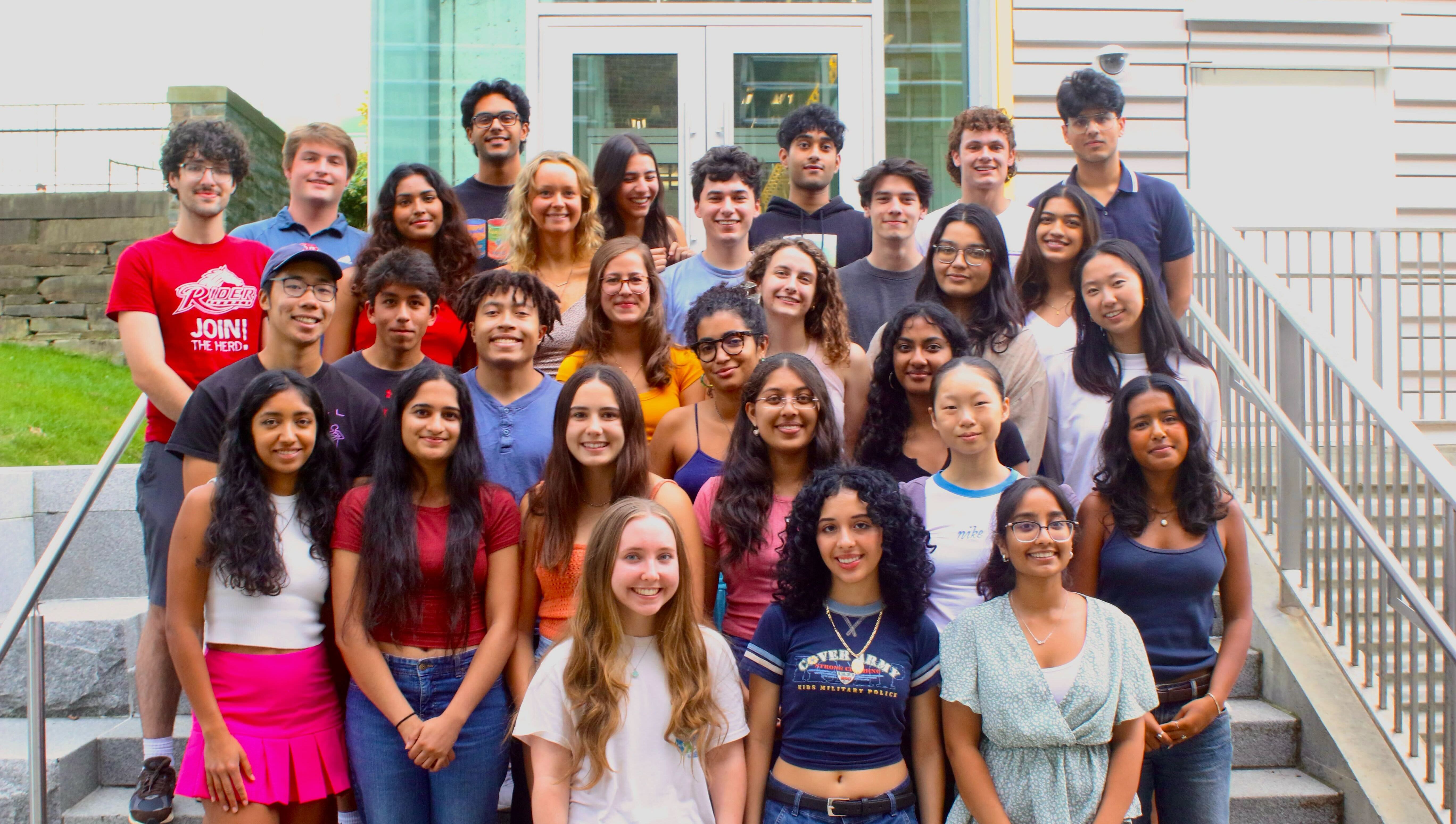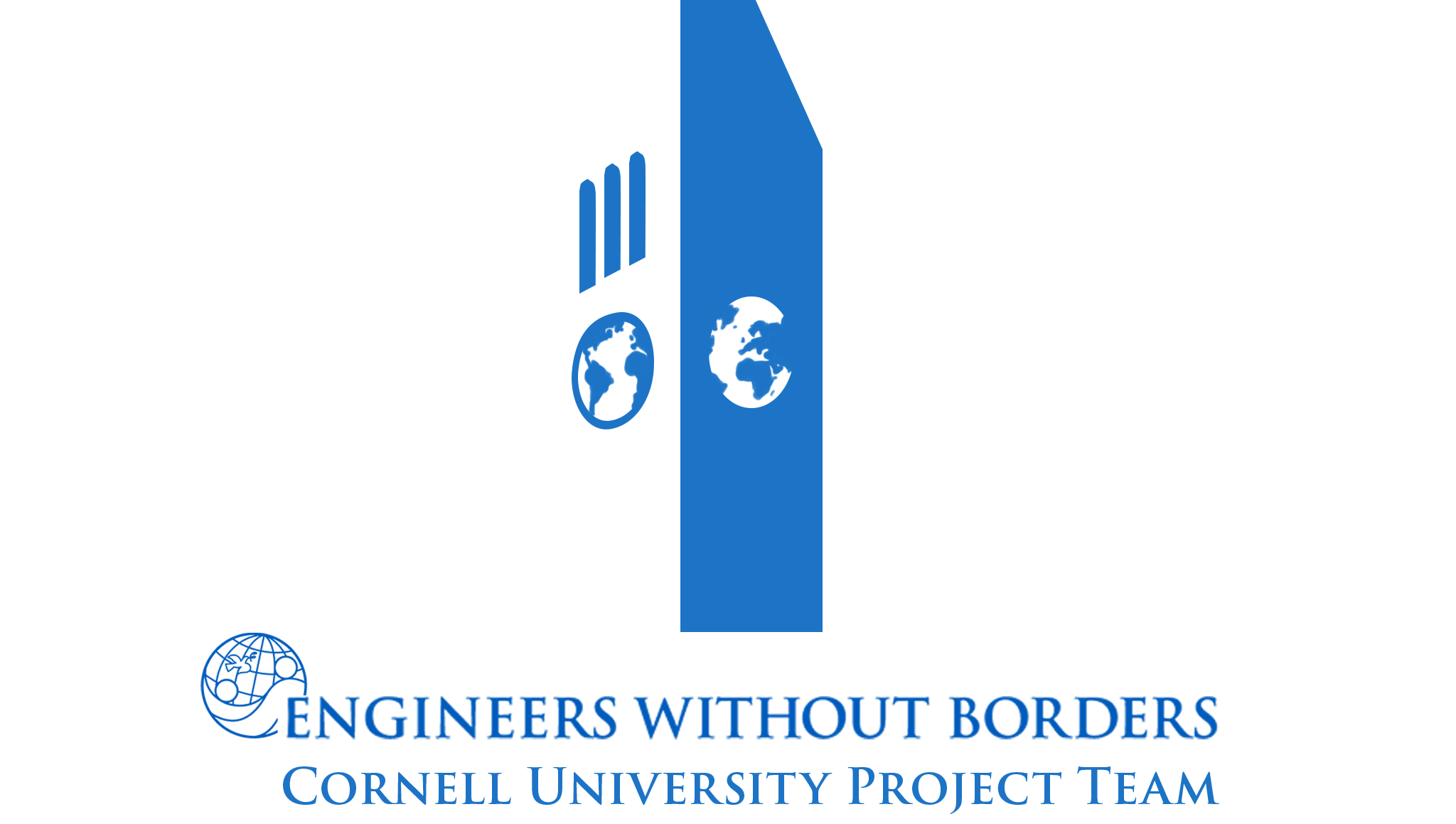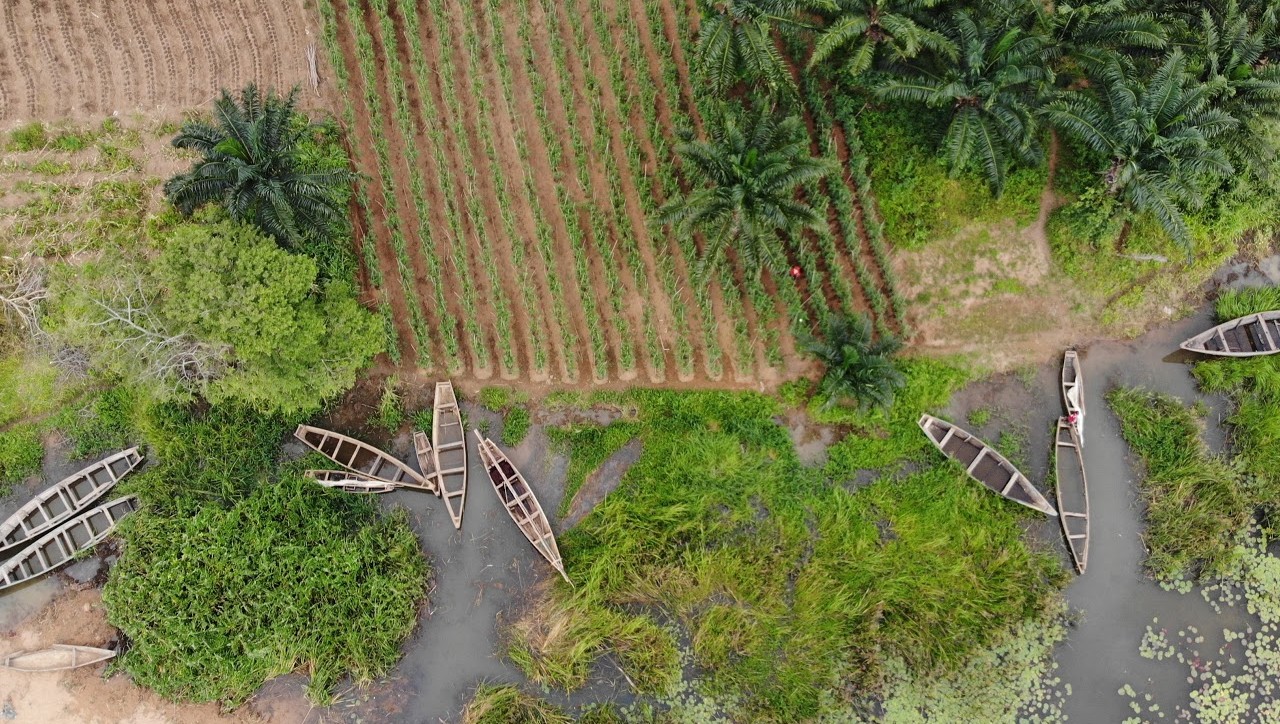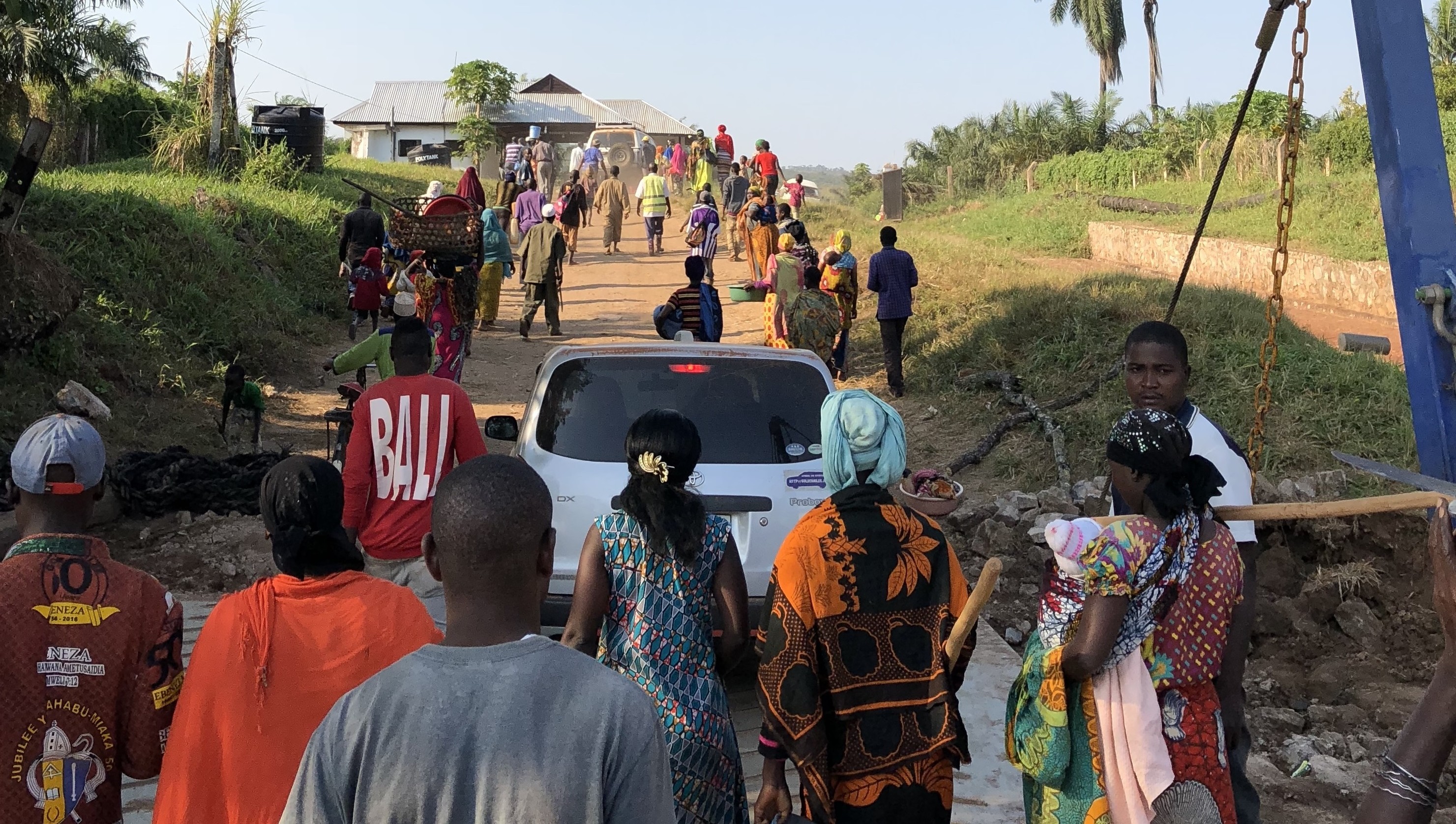Engineers Without Borders
Who We Are
Engineers Without Borders - Cornell is a passionate team of students dedicated to making long-lasting and tangible differences in communities around the world. We believe in the power of engineering to solve real-world problems and are committed to partnering with underserved communities to improve their quality of life through sustainable projects.
Members are given the opportunity to nurture their creative and technical expertise by designing and implementing sustainable engineering projects. Through collaboration with communities in developing countries around the world, our members are exposed to diverse cultures while gaining academic experience outside of the classroom environment.
Our Mission
At EWB, our mission is to:
- Collaborate with Communities: Work hand-in-hand with local populations to identify their needs and develop appropriate solutions.
- Promote Sustainable Development: Implement projects that are environmentally friendly and economically viable for long-term success.
- Empower Through Education: Provide education and resources that enable communities to maintain and expand upon our projects independently.
How You Can Help
Your support will help our projects become a reality, and we are excited to see each of them reach completion in the coming months. Any contribution will greatly assist our team in covering the costs for future trips and the materials needed for our initiatives. Members of EWB-Cornell have the opportunity to nurture their creative and technical expertise through projects like constructing a water access system for the community of San Cristobal, developing sustainability-focused apps, building housing units for those in need, and much more. We are striving to create long-lasting solutions in communities around the world, just as we did with our previous project in Calcha, Bolivia.
By supporting us, you're helping to cover the costs of educational experiences for our members through community outreach, global involvement, and impactful engineering projects. 100% of the funds from this crowdfunding campaign will go toward our future projects. Only with your help can we make this a reality.
If you want to learn more about us, read more about our project and subteams below!
International: Improving Drinking Water Access in San Cristobal, Bolivia
The International Subteam is focused on a transformative project to enhance water accessibility for the community of San Cristobal, a rural village located in Southern Bolivia, just outside of San Lorenzo in the Tarija region.With a population of approximately 500 residents, San Cristobal faces significant challenges in obtaining reliable water, especially during the dry months. During the wet season villages rely on collected rainfall to meet their water needs. However, this source becomes scarce during the dry season, forcing the community to depend on a distant well, which is time-consuming and labor-intensive to access.
To address these challenges, our team plans to construct a piping and pump system to transport water from the local well directly to the village. This will involve installing efficient pumps at the well and laying down a network of pipes to distribute water throughout San Cristobal. We will collaborate with local residents to ensure the system meets their needs and is sustainable, providing training on maintaining the new infrastructure to empower the community to manage it independently.
By improving water access, this project aims to enhance the overall quality of life in San Cristobal. Reliable access to clean water will reduce the prevalence of waterborne illnesses, save time previously spent on water collection—allowing residents to pursue education and economic activities—and support agriculture, cooking, cleaning, and personal hygiene. This initiative represents a significant step toward sustainable development and self-sufficiency for the community of San Cristobal.
Domestic
Our domestic subteam is engaged in an impactful project aimed at addressing water scarcity and food insecurity in Austin, Texas. We are collaborating with the Festival Beach Community Garden and Food Forest to perform a comprehensive drainage study that will support sustainable agriculture in the area. The goal is to implement a sustainable irrigation solution that not only reduces water costs but also restores the natural surface runoff patterns essential for the local ecosystem. This initiative will enhance the garden's ability to produce fresh produce for the community, thereby combating food insecurity.
Our scope of work involves developing sophisticated stormwater management models and designing effective drainage systems using HydroCAD software. We are currently in the process of evaluating site constraints, such as soil composition, topography, and existing infrastructure. By drafting detailed engineering plans, we aim to lay a solid foundation for future implementation of the irrigation system. This groundwork is crucial for ensuring that the solution is both effective and sustainable in the long term. Through this project, we aspire to make a meaningful contribution to the community by promoting sustainable agriculture and environmental stewardship.
Software Development
Our Software Development sub-team is actively working on two innovative mobile applications aimed at promoting sustainability and supporting student resources. In partnership with a local non-profit organization, we are developing a sustainability-focused app compatible with both iOS and Android platforms. This app is designed to encourage the practice of carbon offsetting, which involves reducing CO2 emissions to compensate for emissions made elsewhere. Our goal is to make carbon offsetting more accessible, thereby promoting sustainable practices within the local community and beyond the Ithaca area. By providing users with easy-to-use tools and information, we hope to have a lasting impact on environmental conservation efforts. Currently, our team is finalizing aspects of the backend development, and we anticipate that the app will be ready for deployment to the app store by the end of this semester.
We have also partnered with Cornell Wardrobe, a campus organization dedicated to providing free professional business attire to students who may not have access to such resources. The app we are developing will enhance their services by offering a user-friendly platform where students can browse a variety of clothing options and reserve items in advance. This mobile application will streamline the borrowing process, making it more efficient and accessible for students in need of professional attire for interviews, career fairs, and other important events. By digitizing their services, we aim to support Cornell Wardrobe's mission and assist students in presenting themselves confidently in professional settings.
Through these projects, our Software Development sub-team is committed to leveraging technology to foster sustainability and support our community. We are excited about the potential impact of these apps and look forward to their successful implementation.
Digital Agriculture
Our Digital Agriculture subteam is leading an innovative project to combat crop diseases that threaten global food security, focusing on maize—a staple crop whose production surpasses that of wheat or rice. Maize is severely affected by Northern Leaf Blight (NLB), a disease that can reduce yields by up to 60%, resulting in staggering losses like the 3.36 million tons lost in 2013. Current methods for detecting NLB are either too time-consuming or inaccurate due to subjectivity, making rapid phenotyping inaccessible to many developing communities.
To address this challenge, we are developing non-commercial, open-source Unmanned Aerial Vehicle (UAV) and Unmanned Ground Vehicle (UGV) systems integrated with deep learning algorithms for early disease detection. By leveraging affordable robotics and machine learning, we aim to democratize access to rapid phenotyping tools, lowering costs and making them adaptable for detecting multiple types of crop diseases and stress factors. Our ultimate goal is to increase crop yields and enhance food and economic security on a broad scale, contributing to the long-term sustainability of global food systems.
Business
Our Business Team is integral to the success of both our international and domestic projects, handling fundraising, sponsorships, and event planning to secure the necessary resources. Currently, the team is focusing on two major initiatives. First, they are developing a reimagined website for EWB-Cornell, aiming to propel our mission forward, amplify our presence in the community, and recruit new members. This modernized online platform will serve as a hub for information, engagement, and collaboration.
Second, they are expanding our social media presence to raise awareness of our activities and promote the creation of a more sustainable world. By leveraging various platforms, they aim to reach a wider audience, share our successes, and inspire others to get involved. Additionally, the Business Team has introduced an engineering curriculum implemented among young students in the local Ithaca area. This program teaches engineering principles and ignites excitement about STEM, fostering the next generation of innovators and problem-solvers.
$10
Soft Dev Backend Development
Your donation will cover the cost of the monthly subscription for the backend development of our apps.
$25
Domestic Lumber
Your donation will cover the cost of 10 square feet of wooden framing to help build the SHU tiny homes for the Domestic subteam.
$50
Educational Materials
Your donation will cover the cost for the materials needed in our business team's educational program in the local Ithaca community
$100
IOS App Deployment
Your donation will cover the cost of having software development's app available in the IOS app store for one year.
$500
Tanzanian Visas
Your donation will cover the cost of all the travel visas for our travel team members to perform an assessment trip of the completed irrigation system.
$1,500
New Assessment Trip
Your donation will cover the cost of one of our members to travel to South America to perform an assessment trip for a new project.






